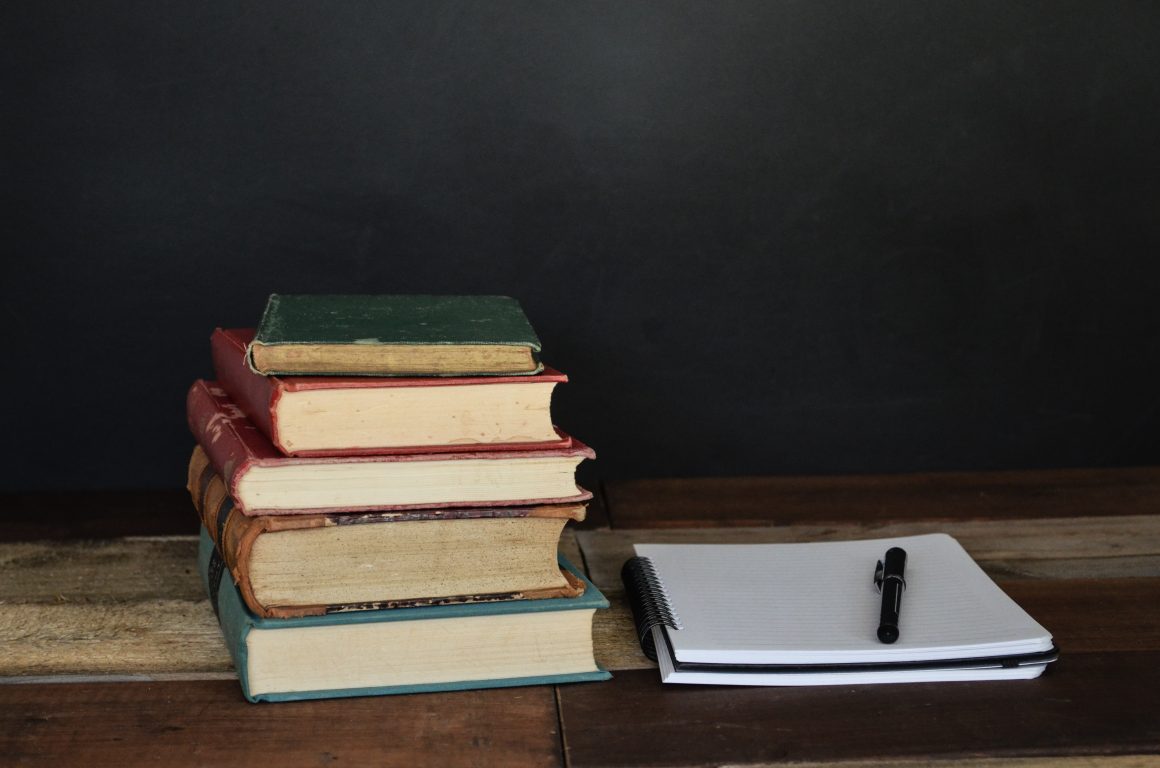
Andrea’s Book Nook: Books you should read before starting university
By Andrea Silva Santisteban Fort, September 15 2021—
As a new academic year is just beginning, I wanted to recommend five books that I think every student should read before or during their university experience. Happy reading!
Atomic Habits: An Easy & Proven Way to Build Good Habits & Break Bad Ones by James Clear
This book is a best seller for one reason — it has useful and well-delivered information. The premise of this read is that, with time and consistency, small habits can compound atomic effects. In other words, small demonstrations of discipline can bring huge benefits into your life. The book is structured in an efficient and understandable way. The author breaks down how to build good habits, like making them obvious, attractive, easy and satisfying, and avoid detrimental practices, like making them invisible, unattractive, difficult and unsatisfying. This is done in a clear, concise and realistic way, using interesting examples of the ideas mentioned. Success is the product of daily habits, not once-in-a-lifetime transformations. That is why I consider this book a good starting point to reflect on which habits you want to incorporate into your life and which ones you don’t want to follow you to university.
Stillness Is the Key by Ryan Holiday
This is a book that I have previously written an article about, in which I go into detail on four useful lessons that this book gives the reader. However, I think it is worth mentioning it again, as a book that could be essential reading in your university experience. The author defends the idea that finding inner peace in a loud world is essential to improving your overall well-being, which I think is an extremely important message. We find ourselves in a globalized context in which we are bombarded with news, uncertainty and a lot of chaos. Finding and mastering your inner world — your mind and emotions — is a step that I consider necessary to stay calm and make the best long-term decisions. In addition, this book offers the reader habits that they can incorporate in order to have a calm and fulfilling life.
Sapiens: A Brief History of Humankind by Yuval Noah Harari
This is a different type of read from the last two mentioned. Throughout this book, Harari tells the story of humanity from how it all began 13.5 billion years ago to the present day. At first, it may seem an intimidating read— maybe because of the size of the book — however, the narrative is extremely fluid, entertaining and contains some subtle humour. This book not only describes the events and processes that have brought us this far, from the creation of our monetary systems to the modern technologies we have developed, but also invites the reader to reflect on the future and what kind of world we want to have and how sustainable the current model is. I recommend reading this book not only for all the information you will learn but also for how it can change your perspective on the way the world works.
The Alchemist by Paulo Coelho
The Alchemist is a novel that I think, regardless of age, everyone should read. In an atmosphere of magical realism, Coelho tells us the story of an Andalusian shepherd boy named Santiago who travels from his homeland in Spain to the Egyptian desert in search of a treasure. Along the way he meets a fortune-teller, a man who calls himself king and an alchemist, all of whom point Santiago in the direction of his quest. One of the main themes of the book is the concept of a “personal legend” or destiny that is related to the pursuit of individual dreams. The journey that Santiago goes through leaves the reader with the message that it is okay to be unsure of yourself and what “treasure” you are seeking, as long as you keep pursuing your personal legend despite the obstacles that may come your way.
I Will Teach You to Be Rich by Ramit Sethi
This last book I recommend to you is intended to help you through this transitional stage. Starting university can require breaking away from familiar surroundings and becoming more independent. One of the biggest responsibilities you will have is the management of your personal resources. Sethi explains everything you were not taught in school about personal finances. The aspect I liked most about this book is that it is aimed at young people who are just starting to earn and spend big amounts of money. This book goes into the subjects of credit cards, savings, bank accounts, investments and conscious spending in a clear and concise way. Money can be one of those uncomfortable topics that no one wants to talk about. Nevertheless, it can be empowering as a student to take control of your financial situation and set yourself up for success.
I hope these books will be useful to you as a new or returning university student. The reads chosen are very different from each other, as they each serve a different purpose and are aimed to help you in a unique way.
